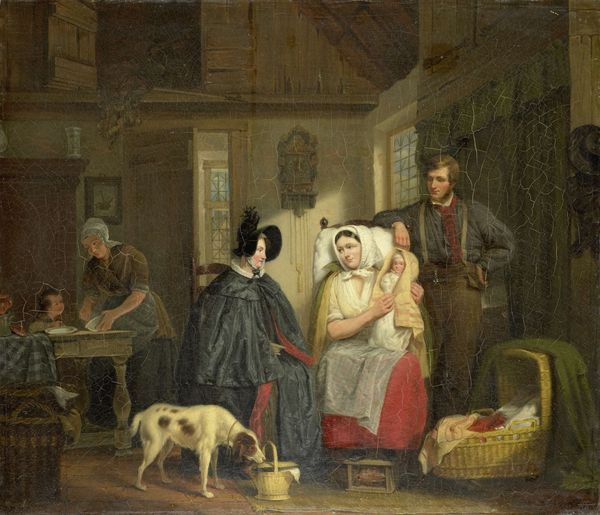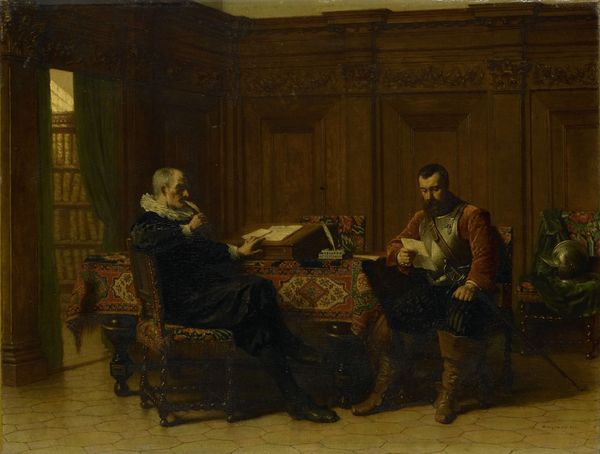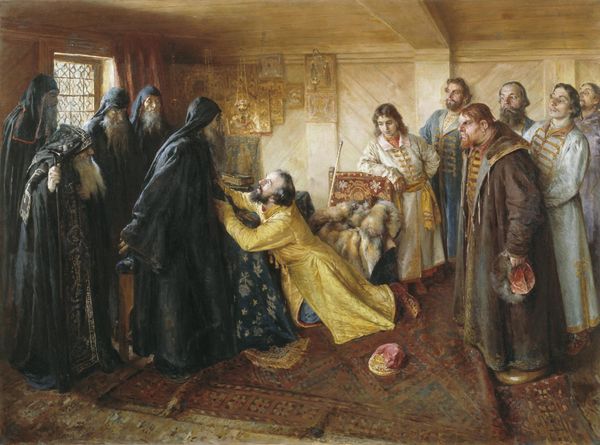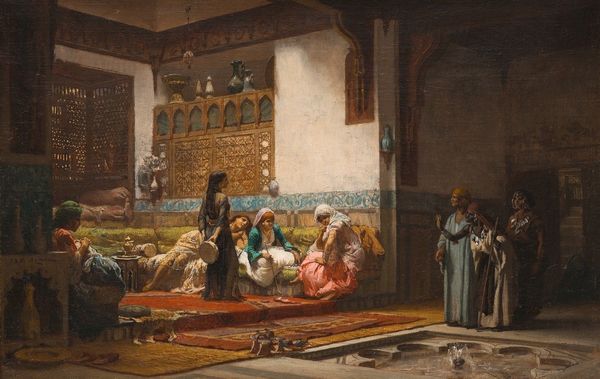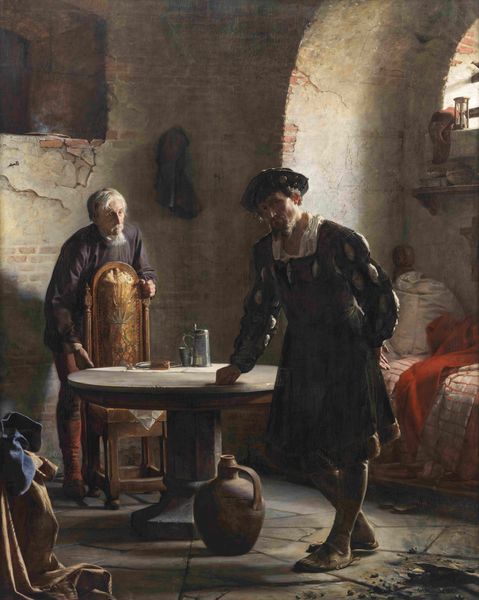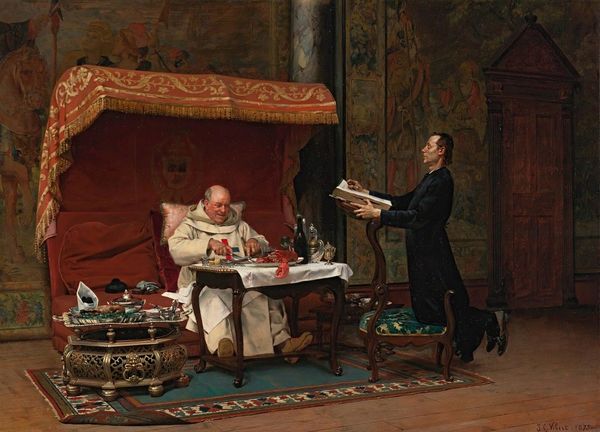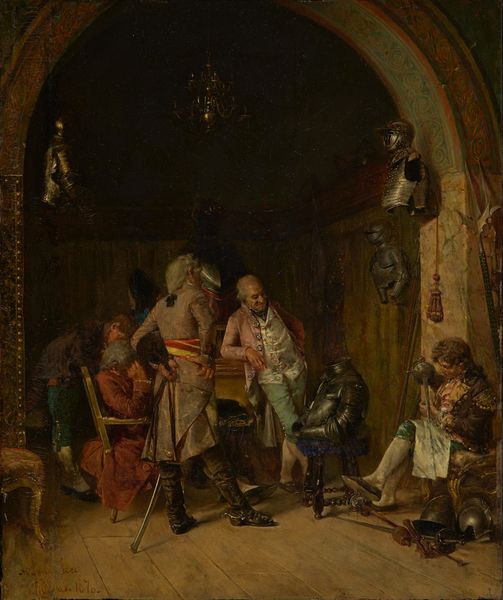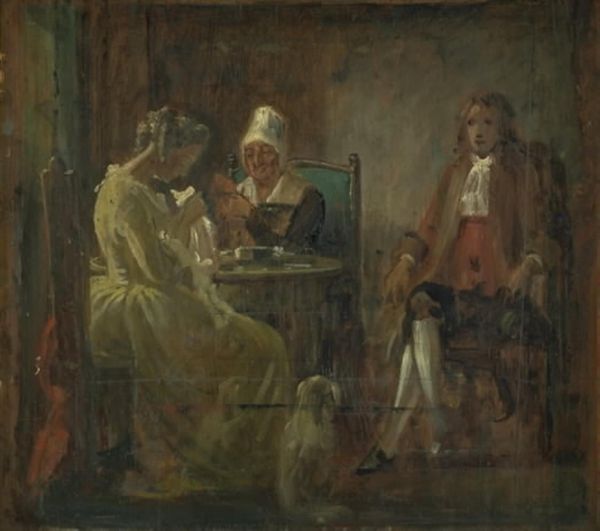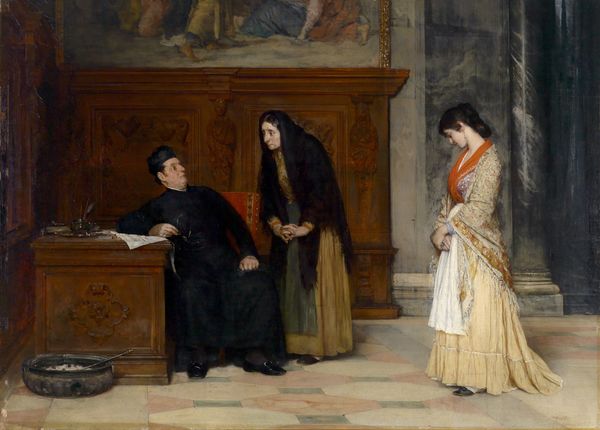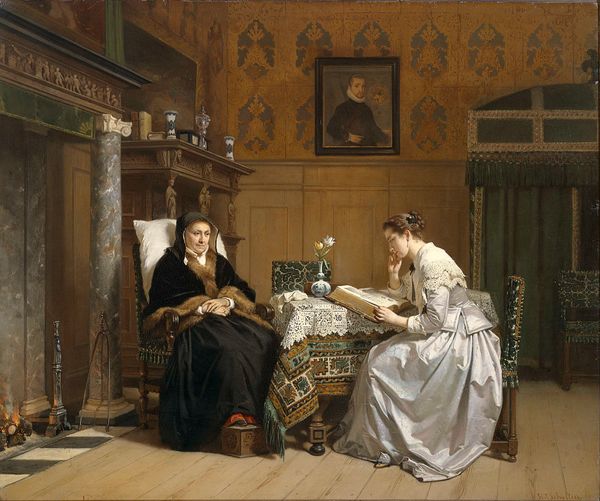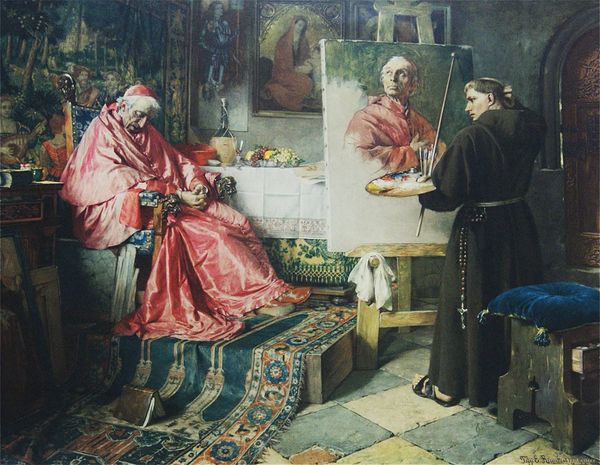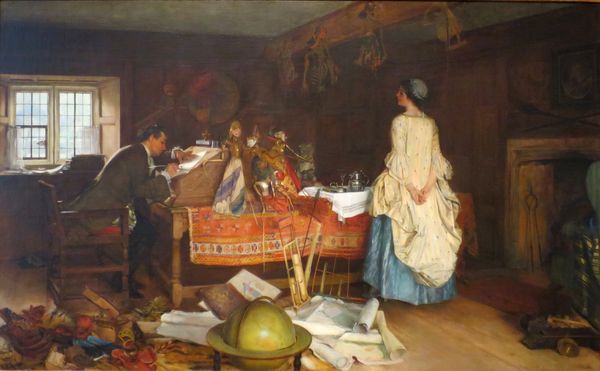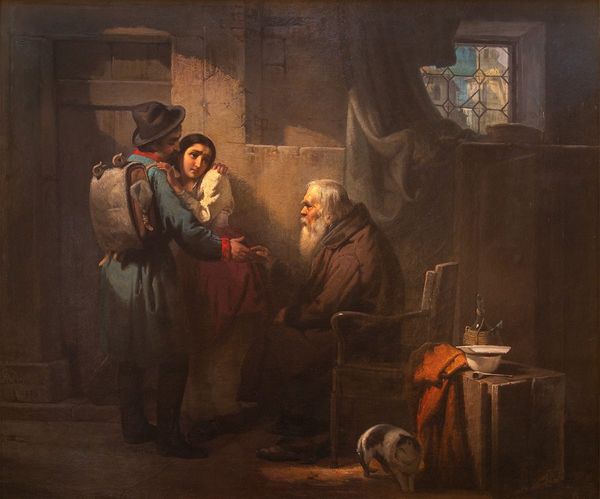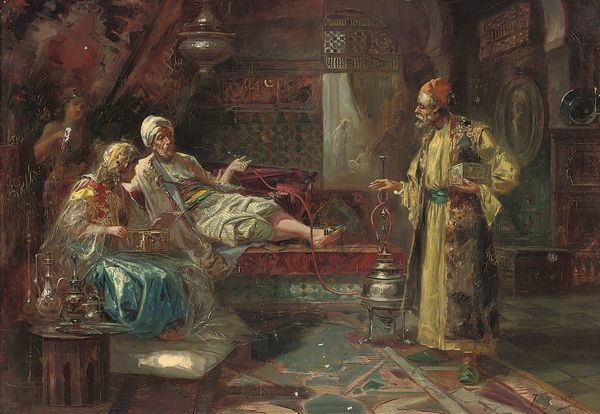
painting, oil-paint
#
narrative-art
#
painting
#
oil-paint
#
figuration
#
group-portraits
#
romanticism
#
genre-painting
Dimensions: 32 cm (height) x 44 cm (width) (Netto)
Wilhelm Marstrand painted ‘The Return of the Prodigal Son’ in Denmark, although the precise date is unknown. It’s an intimate oil on canvas that reflects a story of forgiveness, family, and social expectations. Marstrand creates meaning through visual codes reflecting the cultural norms of 19th-century Denmark. The well-dressed family gathered around a laden table signifies societal stability and economic success, while the returning son's tattered clothes and bare feet immediately tell us of his fall from grace. Religion played a central role in Danish society, and the scene invokes a well-known Christian parable about redemption. However, the artist's own middle-class background and artistic training at the Royal Danish Academy of Fine Arts would have encouraged him to reflect on social mobility and personal responsibility in his artwork. As historians, we turn to such things as period literature, religious texts, and records from the Academy to deepen our understanding, always aware that the meaning of art is tied to its social and institutional context.
Comments
No comments
Be the first to comment and join the conversation on the ultimate creative platform.
